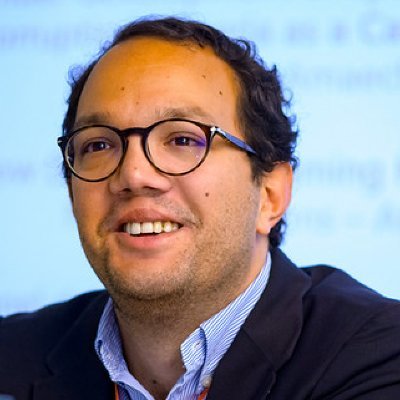Is FIFA meeting their climate change standards? — interview with Samindra Kunti
More than VAR controversies, sportswashing projects and the flouting of financial rules, football’s greatest challenge is the game’s impending collision with the climate crisis. Grassroots matches are already under threat from rising sea levels. Games in India have been rescheduled due to heat waves. While temperatures reached 49°C in Delhi, there is an immediate pause for concern. Is this a priority for the man in charge of the game, FIFA president Gianni Infantino?
Not so according to journalist Samindra Kunti, author of Brazil 1970: How the Greatest Team of All Time Won the World Cup, a book that was shortlisted for the Sunday Times Sports Book Awards 2023.
“He says A and then he does B,” Kunti said. “The examples are numerous. He dismantled FIFA’s ethics committee basically the moment he got in. He claims to care about the climate as a PR stunt. He constantly criss-crosses the world in a private jet. At the latest COP in Dubai [United Nations Climate Change Conference] he arrived in his private jet. Then, he just jetted off to Indonesia, from Indonesia he went to Guam, from Guam to Hawaii, and Hawaii to Miami.”
Kunti’s work has been featured on BBC Sport, Forbes, and World Soccer Magazine. He is also the author of Brazil 1970: How the Greatest Team of All Time Won the World Cup, a book that was shortlisted for the Sunday Times Sports Book Awards 2023.

Samindra Kunti
Kunti has taken a main focus surrounding investigative journalism towards FIFA as a federation.
His work draws parallel to the late Andrew Jennings, who did extensive work to expose corruption in FIFA. Jennings wrote the book The Dirty Game: Uncovering the Scandal at FIFA, which led the FBI to evidence surrounding Sepp Blatter’s toxic regime. Blatter was later arrested and resigned.
It is important to note the FIFA Ethics Committee is selected through Congress, not the president himself. There is now a full transparency policy for the legal decisions FIFA makes (Article 37.3-Confidentiality) FIFA Code of Ethics, 2023.
In regards to morality, the reported lavish lifestyles of high ranking FIFA officials during the tenures of previous presidents, João Havelange and Sepp Blatter, did not help FIFA’s reputation. A FIFA spokesperson spoke about the changes at the organization since the regimes of previous presidents.
“Since the conclusions of investigations into the previous regime, the current, democratically elected, president Gianni Infantino has changed FIFA from a toxic institution to a respected, trusted and modern governing body.
“In 2022, FIFA was rated with some of the best standards of governance following a review conducted by the Association of Summer Olympic International Federations. Additionally in 2021, the U.S Department of Justice awarded $201 million in compensation for the losses suffered by FIFA, and confederations, following decades of corruption in football.”
Climate change is another issue that has been at the forefront of FIFA’s agenda. Has there been significant change in this department?
There has been a focus on building eco-friendly stadiums. Per the Paris Agreement, FIFA is aiming to become emissions neutral by 2050. FIFA claimed the 2022 World Cup would be “carbon-neutral”. Claims of hypocrisy rose to the surface again.
Gianni Infantino, FIFA president, (R) speaking with the President of Rwanda, Paul Kagame, (L) at the United Nations Climate Change Conference 2023
How does FIFA plan to navigate a 2026 World Cup that will be played in three different countries and a 2030 World Cup that will be played in three different continents?
Travel becomes an essential component for FIFA. There are 211 member associations in the federation. An absence of Infantino’s presence at major events could be perceived as a lack of interest from the leader of the organization.
FIFA has a sustainability section and has committed their focus to decreasing carbon emissions.
FIFA estimated the tournament would have a carbon footprint or carbon waste of 3.6 million tonnes. Lancaster University professor Mike Berners-Lee estimated a total over “10 million tonnes”. There were seven stadiums built in the lead up for the tournament out of the eight used, and all but one were built specifically to host the World Cup. Completing the construction of seven stadiums in the span of a little over a decade requires extensive work.
The scale of the events held within the upcoming years puts a heavy emphasis on logistics.
“Having these mega sporting events and taking them to new extremes is just the opposite of the direction you should go in,” Kunti said.
Air travel, cars, trains, or buses can contribute to ‘indirect’ emissions. These modes of transportation are powered through fossil fuels and produce air pollution.
One major issue surrounding the 2022 World Cup was the construction of highways, hotels, transport systems alongside stadiums. Construction leads to more CO2 emissions and the excessive heat led to intense working conditions for the migrant workers in Qatar.
Temperature is another factor in the future of mega-events for FIFA.
In the 2026 World Cup, Mexico will be hosting the tournament in three different cities. Mexico City, Guadualjara and Monterrey.
Temperatures reached above 40°C in Monterrey in the summer of 2023 during a heat-wave.
As temperatures continue to rise around the world, these atypical heatwaves could become more of a habitual occurrence.
Imagine Kylian Mbappé drenched in sweat and striving to score another goal under the Nuevo Leon sun, amidst temperatures reaching above 105° degrees or higher.
It is a sight that would be memorable, but potentially hazardous.